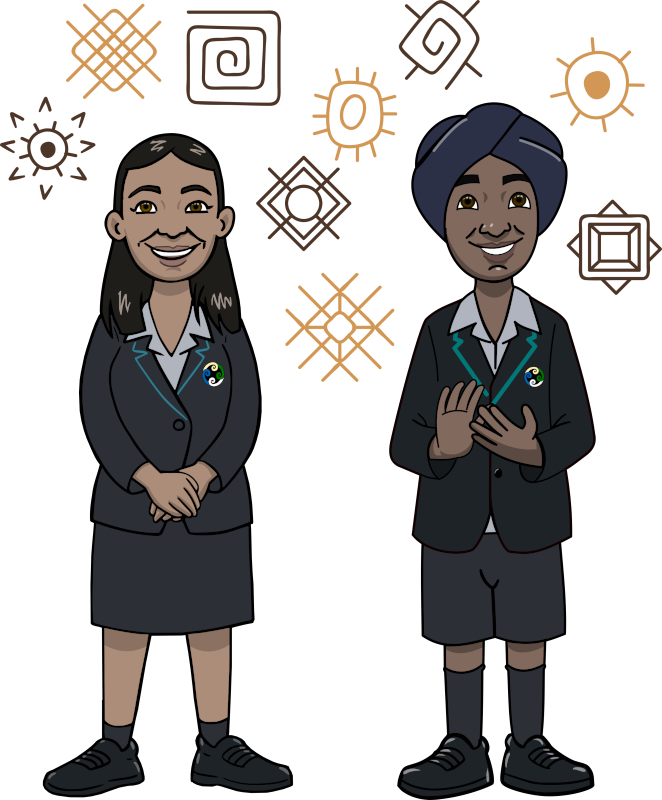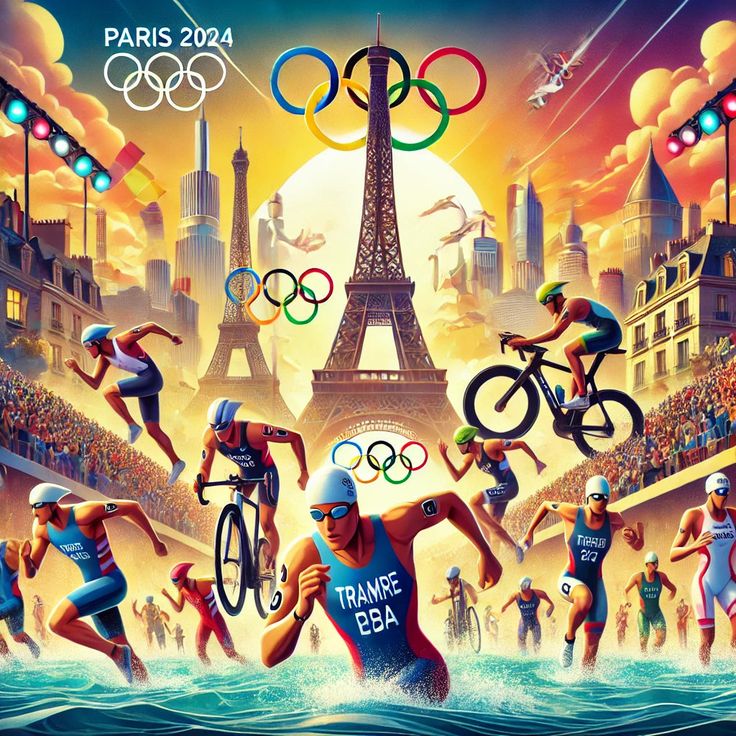8C2 Global Studies
Section outline
-
Nau mai, haere mai 8C2
Welcome to your Global Studies class for 2024.
Mā te tāngata i te waka
Haere haumaru ki takutai
Hei tūhura ki te ao tūroa
(When the people and the waka
arrive safely to the shores,
they will be ready to explore the world)
Welcome to a new academic year filled with possibilities, growth, and exciting challenges! As you embark on this journey, remember that each day is an opportunity to learn, explore, and discover your incredible potential.
Embrace every challenge with courage, for it is through challenges that we learn, grow, and become stronger individuals. Approach your studies with curiosity and enthusiasm, knowing that each lesson is a step toward your personal and academic success.
You are capable of achieving greatness, and your unique talents contribute to the vibrant tapestry of our learning community. Believe in yourself, stay focused on your goals, and never underestimate the impact of your efforts.
Ka kite ano
Mrs M Naidoo
-
Opened: Saturday, 22 June 2024, 12:00 AMDue: Tuesday, 28 June 2050, 6:00 PM
-
This term, we are focusing on "How human events may promote Kotahitanga," exploring the concepts of Unity, Togetherness, Oneness, and collective action. These ideas are central to understanding how global events like the Olympics bring diverse cultures together for a common purpose. In this assessment, students will apply essential skills such as mapping, graphing, and resource interpretation, all within the context of the Paris 2024 Olympics. This assessment emphasises critical thinking, cultural understanding, and social action.
-
-
He hono tangata e kore e motu; ka pa he taura waka e motu
Unlike a canoe rope, a human bond cannot be severed.
WELCOME BACK TO A NEW TERM WHANAU.
AS OUR LEARNING JOURNEY BEGINS WE WILL DIVE INTO THE MANY ASPECTS OF THE ANZAC JOURNEY.

Learning Intentions:
- Students will understand the significance of ANZAC Day for New Zealanders.
- Students will know about the key events of the Gallipoli Campaign during World War One.
- Students will be able to explain the impact of World War One on New Zealand society.
Success Criteria:
- Students can explain why ANZAC Day is important to New Zealanders (e.g., remembering sacrifices, national identity).
- Students can identify key events of the Gallipoli Campaign on a timeline (e.g., landings, battles, evacuation).
- Students can describe the impact of World War One on New Zealand society (e.g., loss of life, social change, economic effects).
-
Kia ora whanau
We will continue with our learning on ANZAC Day this week.

Learning Intentions:
- Students will understand the significance of ANZAC Day for New Zealanders.
- Students will know about the key events of the Gallipoli Campaign during World War One.
- Students will be able to explain the impact of World War One on New Zealand society.
Success Criteria:
- Students can explain why ANZAC Day is important to New Zealanders (e.g., remembering sacrifices, national identity).
- Students can identify key events of the Gallipoli Campaign on a timeline (e.g., landings, battles, evacuation).
- Students can describe the impact of World War One on New Zealand society (e.g., loss of life, social change, economic effects).
-
Kia ora class! Today we begin a journey into a significant chapter of Aotearoa New Zealand's history – Te Wāhi Kōrero mō te -Te Haakina wāhine ki te pooti-, the fight for women's right to vote.
By the end of this wānanga (learning journey), we will be whai whakaaro (thinking critically) about the events, people, and changes brought about by this movement. We'll be delving into the timeline of suffrage in Aotearoa, recognising the key wāhine toa (powerful women) who led the charge, and understanding the impact their victory had on our society.
This is a story about overcoming challenges, celebrating victories, and ultimately achieving whakawhitinana (equality) – a core principle of a healthy democracy. So, hoki mai (pay attention) and prepare to be inspired by the wāhine who paved the way for a fairer Aotearoa!
Learning Intentions:
- Understand the significance of the Women’s Suffrage Movement in New Zealand history.
- Analyse key events, people, and impacts of women’s suffrage on society in Aotearoa.
- Reflect on the challenges faced and victories achieved during the suffrage movement.
Success Criteria:
- Identify the timeline of events leading to women’s suffrage in New Zealand.
- Discuss the key figures involved in the suffrage movement and their contributions.
- Evaluate the impact of women’s suffrage on New Zealand society.
- Reflect on the importance of gender equality and democracy in contemporary society.

-
Kia ora class! Today we begin a journey into a significant chapter of Aotearoa New Zealand's history – Te Wāhi Kōrero mō te -Te Haakina wāhine ki te pooti-, the fight for women's right to vote.
By the end of this wānanga (learning journey), we will be whai whakaaro (thinking critically) about the events, people, and changes brought about by this movement. We'll be delving into the timeline of suffrage in Aotearoa, recognising the key wāhine toa (powerful women) who led the charge, and understanding the impact their victory had on our society.
This is a story about overcoming challenges, celebrating victories, and ultimately achieving whakawhitinana (equality) – a core principle of a healthy democracy. So, hoki mai (pay attention) and prepare to be inspired by the wāhine who paved the way for a fairer Aotearoa!
Learning Intentions:
- Understand the significance of the Women’s Suffrage Movement in New Zealand history.
- Analyse key events, people, and impacts of women’s suffrage on society in Aotearoa.
- Reflect on the challenges faced and victories achieved during the suffrage movement.
Success Criteria:
- Identify the timeline of events leading to women’s suffrage in New Zealand.
- Discuss the key figures involved in the suffrage movement and their contributions.
- Evaluate the impact of women’s suffrage on New Zealand society.
- Reflect on the importance of gender equality and democracy in contemporary society.

-
Kia ora koutou,
Welcome to Term 3, Week 1
Nau mai, hoki mai e te whānau!
"Ehara taku toa i te toa takitahi, engari he toa takitini."
"My strength is not that of an individual, but that of a collective."
Welcome to a new term, everyone! This week, we are diving into the fascinating world of the Olympic Games, from their ancient beginnings to their modern-day significance especially focusing on the upcoming Paris 2024 Olympics.
Learning Intentions:- Discover the historical roots of the Olympic Games.
- Understand the symbolism and key elements of the Olympics.
- Compare and contrast the ancient and modern Olympic Games.
- Explore the upcoming Paris 2024 Olympics and the significance of the torch lighting ceremony.
- Describe the origin and evolution of the Olympics.
- Identify and explain the symbols associated with the Olympic Games.
- Discuss the differences between the ancient and modern Olympic Games.
- Explain the importance of the torch lighting ceremony, especially for the Paris 2024 Olympics.
Let's get ready to uncover the legacy of the Olympics and the excitement surrounding the Paris 2024 Games! -
Awhinatanga: Positive Partnerships

Awhinatanga: Culturally Connected

Pono: Hauora

Term 3 Week 2
Kia ora koutou,
He waka eke noa.
We are all in this together.
Get ready to board on an exciting journey as we explore the values of the Olympics 2024, we delve into the events and highlights of Paris 2024 and engage in activities that allow us to analyse and reflect on these topics. We will also look more deeply at the evolution of the Olympics from ancient times to the present day.
FOCUS / ARONGA Learning Intentions:- We are FOCUSING on understanding and explaining the core values of the Olympics.
- We are FOCUSING on exploring the aspirations of Aotearoa as well as other events and highlights of the Paris 2024 Olympics.
- We are FOCUSING on comparing and contrasting ancient, modern, and Paris 2024 Olympics using various strategies.
Kotahitanga (Unity):
- Understand how the Olympics can promote unity by bringing people from different countries and cultures together.
- Reflect on how we can create a sense of unity.
- In the upcoming weeks, we will explore the economic implications of the Olympics, such as the impact of tourism, and develop our mapping and graphing skills, which will further demonstrate how unity can lead to shared benefits and collective success.
Learning Intentions:
- Students will be able to understand and explain the core values of the Olympics.
- Students will be able to describe key events and highlights of the Paris 2024 Olympics.
- Students will be able to compare and contrast the ancient Olympics, modern Olympics, and Paris 2024 Olympics using Venn diagrams, inquiry, mind maps etc.
- Students will develop skills for reflecting on the experience of attending an Olympic event.
- Students will enhance their critical thinking through inquiry-based learning.
- I can identify and explain the core values of the Olympics.
- I can describe key events and highlights of the Paris 2024 Olympics.
- I can use Venn diagrams to compare and contrast the ancient, modern, and Paris 2024 Olympics.
- I can write a reflection (diary entry) on the experience of attending an Olympic event, describing the atmosphere, the event, and personal reflections.
- I can conduct inquiry-based learning to explore and present information about the Olympics.

-
Term 3 Week
Awhinatanga: Culturally Connected

Awhinatanga: Positive Partnerships

Ako: Digital Literacy

Kia ora koutou,
Ehara taku toa i te toa takitahi, engari he toa takitini.
My strength is not as an individual, but as a collective.This week, we will dive into the fascinating world of maps and geography. Our focus will be on understanding key concepts like longitude and latitude, the Equator, and developing essential mapping skills. We will also learn about grid referencing techniques and coordinates, using them to identify and plot locations. Our exploration will include identifying Olympic host cities, examining their geographical distribution, and understanding the significance of map scales.
FOCUS / ARONGA Learning Intentions:
- We are FOCUSING on understanding the basic concepts of mapping, including the layout of the world map.
- We are FOCUSING on comprehending the significance and usage of latitude and longitude in locating places on Earth.
- We are FOCUSING on developing skills in plotting and identifying locations using coordinates.
- We are FOCUSING on identifying and plotting Olympic host cities and discussing their geographical distribution.
- We are FOCUSING on learning about map scales and their practical applications, including measuring distances between locations.
Kotahitanga (Unity):
Mapping and geographical knowledge connect people worldwide, enhancing our understanding of global diversity and fostering a sense of unity, as seen in the shared experiences of events like the Olympics.Learning Intentions:
- Students will understand the basic concepts of mapping and the world map layout.
- Students will comprehend the significance of latitude and longitude and their practical uses.
- Students will develop skills in using coordinates to plot and identify locations on a map.
- Students will identify past and future Olympic host cities and discuss their geographical distribution.
- Students will learn about map scales and how to use them to measure distances between locations.
Success Criteria:
- I can explain the basic concepts of mapping and identify major features on a world map.
- I can describe the significance of latitude and longitude and use them to locate places on Earth.
- I can accurately plot locations using coordinates and grid referencing techniques.
- I can identify and plot Olympic host cities and discuss their geographical distribution.
- I can explain and apply the concept of map scales to measure distances between locations.
Get ready for an engaging week as we map our way through these exciting concepts, exploring the world and its features while connecting them to the global phenomenon of the Olympics. Let's learn together and discover the power of maps!

-
Kia ora koutou,
Whāia te iti kahurangi ki te tūohu koe me he maunga teitei.
Seek the treasure you value most dearly, if you bow your head, let it be to a lofty mountain.
This week, in Week 4, we will shift our focus to developing essential graphing skills and interpreting visual resources such as infographics. We will explore different types of graphs, such as bar graphs, line graphs, and pie charts, learning how to plot and interpret data effectively. In addition, we will analyze infographics to understand how information is visually presented and communicated.
FOCUS / ARONGA Learning Intentions:
We are FOCUSING on learning how to construct and interpret bar graphs, line graphs, and pie charts.
We are FOCUSING on understanding how to present data visually and accurately.
We are FOCUSING on resource interpretation, with a particular focus on infographics, to grasp how information can be visually conveyed.
We are FOCUSING on connecting graphing skills to real-life data, such as Olympic statistics and environmental reports.
Kotahitanga (Unity): Understanding data and interpreting graphs brings clarity to complex information, promoting collaboration and shared understanding. Just as diverse individuals unite through visual representation, we will explore how graphs and infographics make data accessible to all.
Learning Intentions:
Students will learn how to plot and interpret bar graphs, line graphs, and pie charts. Students will understand the importance of visual presentation of data. Students will develop skills in interpreting infographics and other visual resources. Students will apply graphing skills to real-world data, such as Olympic statistics or environmental changes.
Success Criteria:
I can accurately construct and interpret different types of graphs (bar, line, pie). I can explain the significance of clear and accurate visual data presentation. I can analyse and interpret information from infographics. I can apply graphing skills to real-world examples, such as Olympic data or environmental reports.
Get ready for an interactive week of learning as we graph our way through data and infographics, gaining valuable insights into how numbers and information can be communicated visually. Let's work together to build our graphing expertise and become proficient at interpreting resources!
-
Kia ora koutou,
Nā tō rourou, nā taku rourou, ka ora ai te iwi.
With your food basket and my food basket, the people will thrive.In Week 5, we will continue to sharpen our graphing skills by focusing on line charts, and we will dive into reading comprehension techniques. This week, you will learn how to effectively create and interpret line charts while also improving your ability to skim, scan, and infer meaning from texts. We will enhance your understanding by using graphic organizers such as Venn diagrams and concept maps to make connections and deepen comprehension.
FOCUS / ARONGA Learning Intentions:
- We are FOCUSING on constructing and interpreting line charts to analyze trends over time.
- We are FOCUSING on improving reading comprehension skills by using inferencing, skimming, and scanning techniques.
- We are FOCUSING on using graphic organizers like Venn diagrams to compare, contrast, and make connections in texts.
- We are FOCUSING on combining visual data (graphs) and reading comprehension skills to understand real-world scenarios more clearly.
Kotahitanga (Unity):
Just as graphs visually represent the relationships between data points, reading comprehension techniques help connect ideas across different texts. By combining these skills, we can foster deeper understanding and unity in interpreting information.
Learning Intentions:
- Students will develop skills in constructing and interpreting line charts.
- Students will enhance their reading comprehension using inferencing, skimming, and scanning techniques.
- Students will use graphic organizers to visually represent connections between ideas.
- Students will apply both graphing and comprehension skills to make sense of real-world data and texts.
Success Criteria:
- I can accurately construct and interpret line charts and understand trends.
- I can use skimming, scanning, and inferencing techniques to comprehend texts effectively.
- I can create and use graphic organizers to compare and make connections between ideas.
- I can integrate graphing and reading skills to analyze and understand real-world examples, such as trends in sports or environmental data.
Prepare for an engaging week of learning as we deepen our graphing skills and refine our reading strategies, making meaningful connections between visual data and text. Together, we will continue to build our knowledge and understanding!
-
Kia ora koutou,
He aha te mea nui o te ao? He tāngata, he tāngata, he tāngata.
What is the most important thing in the world? It is people, it is people, it is people.In Week 6, we will focus on consolidating our mapping and graphing skills. This week is all about reinforcing what we have learned in the past weeks. We will continue to explore maps, applying our knowledge of latitude, longitude, and coordinates, while also refining our graphing skills, particularly bar graphs, line charts, and pie charts. Our goal is to solidify your ability to use these skills confidently and accurately.
FOCUS / ARONGA Learning Intentions:
- We are FOCUSING on consolidating our understanding of mapping skills, including latitude, longitude, and grid referencing.
- We are FOCUSING on refining our graphing skills, including bar graphs, line charts, and pie charts.
- We are FOCUSING on interpreting both maps and graphs to connect data with geographical information.
- We are FOCUSING on applying these skills to real-world data and geographical case studies.
Kotahitanga (Unity):
Mastering mapping and graphing skills helps us better understand our world and the connections between people, places, and data. These skills unite visual information with geographical knowledge, creating a clearer picture of global issues and events.
Learning Intentions:
- Students will consolidate their mapping skills, including the use of latitude, longitude, and grid referencing.
- Students will enhance their graphing skills by creating and interpreting bar graphs, line charts, and pie charts.
- Students will connect geographical data with visual representations through maps and graphs.
- Students will apply these skills to real-world scenarios, analyzing data in geographical contexts.
Success Criteria:
- I can accurately apply my knowledge of mapping, including latitude, longitude, and coordinates.
- I can confidently construct and interpret bar graphs, line charts, and pie charts.
- I can connect data to geographical information using maps and graphs.
- I can apply my mapping and graphing skills to real-world case studies and data sets.
This week is all about practicing and perfecting the skills you have learned so far. Let’s work together to ensure you feel confident and capable in using both mapping and graphing techniques to explore and understand our world.
-
Kia ora koutou,
Ma te huruhuru ka rere te manu.
Adorn the bird with feathers so it can fly.In Week 7, we will practice and summarize everything we have learned in preparation for your written assessment on Friday. We will review all key concepts, including mapping, graphing, and reading comprehension skills, to ensure that you are fully prepared. We will also discuss the rubric in detail, going over the expectations for your bar graph construction and resource interpretation, particularly focusing on Kotahitanga and the Olympics 2024.
On Thursday, we will have a practice test to help you familiarize yourself with the assessment format and the key parameters. This will give you the opportunity to ask any questions and clarify any doubts before the actual test on Friday.
FOCUS / ARONGA Learning Intentions:
- We are FOCUSING on reviewing all learned skills: mapping, graphing, and reading comprehension.
- We are FOCUSING on understanding the assessment rubric and expectations for the written assessment.
- We are FOCUSING on practicing for the assessment by completing a mock test on Thursday.
- We are FOCUSING on summarizing our knowledge of Kotahitanga in the context of the Olympics 2024.
Kotahitanga (Unity):
As we prepare for our assessment, we will reflect on how the Olympics promotes unity and togetherness, and how these values are central to Kotahitanga. The principles of working together will guide our final week of practice.
Learning Intentions:
- Students will review key concepts and skills, including mapping, graphing, and resource interpretation.
- Students will understand the assessment rubric and criteria for success.
- Students will apply their learning in a practice test and be fully prepared for the written assessment.
Success Criteria:
- I can accurately review and apply my learning from previous weeks.
- I can clearly understand the assessment rubric and know what is expected of me.
- I can confidently complete the practice test and prepare for the final assessment.
- I can explain the concept of Kotahitanga in the context of the Olympics 2024 and apply it to real-world challenges.
Get ready for a week of practice and preparation as we work together to ensure you are well-prepared for your assessment. Remember, kotahitanga is about unity, and we will succeed together!
-
Kia ora koutou,
Ko te pae tawhiti, whāia kia tata; ko te pae tata, whakamaua kia tina.
Seek out distant horizons, and cherish those you attain.In Week 8, we will dive into exciting mini research topics on the Olympics 2024 and engage in digital activities focusing on extreme sports. Alongside these, we will continue refining our mapping skills by practicing annotation and identifying key geographical features such as continents, oceans, and tropics, while also working on understanding relative direction.
FOCUS / ARONGA Learning Intentions:
- We are FOCUSING on conducting mini research projects on the Olympics 2024, exploring key events and their global impact.
- We are FOCUSING on engaging in digital activities centered on extreme sports and their significance in global sporting culture.
- We are FOCUSING on annotating maps and identifying continents, oceans, tropics, and other geographical features.
- We are FOCUSING on developing our understanding of relative direction and how to use it when navigating maps.
Kotahitanga (Unity):
This week, through research and digital collaboration, we will explore how global events like the Olympics and extreme sports unite people across continents, fostering a sense of shared experience and connection.
Learning Intentions:
- Students will conduct mini research on the Olympics 2024, identifying important events and their significance.
- Students will engage in digital activities related to extreme sports, understanding their place in the sporting world.
- Students will annotate maps, identifying major geographical features such as continents, oceans, and tropics.
- Students will use relative direction to describe and navigate locations on a map.
Success Criteria:
- I can research and present key findings on the Olympics 2024.
- I can participate in digital activities related to extreme sports and reflect on their global impact.
- I can accurately annotate maps, identifying continents, oceans, and other features.
- I can use relative direction to explain and describe locations on a map.
Let’s prepare for a fun and engaging week as we dive deeper into our research, explore the world of extreme sports, and enhance our mapping skills. We will connect these activities with the global themes of the Olympics and continue our journey of learning together.
-
Kia ora koutou,
Nau mai, haere mai!
Welcome back to Term 4.
I hope you all had a restful break and are ready to dive into a new term full of learning and growth. As we begin this final term of the year, we will explore the exciting theme of celebrations—looking at how different cultures, both here in Aotearoa and around the world, express their values, traditions, and identity through festivals and special events.
Week 1: Celebrations – Understanding Cultural Significance
This week, we will begin by exploring the different types of celebrations that people observe, whether they are cultural, religious, or historical. As we explore these celebrations, we will also reflect on the deeper meanings they carry and how they contribute to maintaining cultural identity and traditions. We will connect this learning to the Māori values of Manaakitanga (hospitality) and Whanaungatanga (building relationships), recognizing the importance of celebration in bringing people together.
FOCUS / ARONGA Learning Intentions:
- We are FOCUSING on identifying and understanding different types of celebrations and their cultural significance.
- We are FOCUSING on reflecting on how celebrations help preserve cultural identity and traditions.
- We are FOCUSING on making connections between celebrations and key values such as Manaakitanga and Whanaungatanga.
Activities: Throughout the week, we will explore a range of celebrations from different cultures, considering their origins and significance. We will also reflect on a celebration that is important to us or our family, thinking about how it connects to our identity and heritage. By the end of the week, we will be able to explain the importance of different celebrations and the values they represent.
Celebrations Context: We will explore how celebrations play an essential role in expressing cultural identity and creating a sense of belonging within communities. This learning will help us appreciate the diverse ways in which people come together to honor their heritage and traditions.
Learning Intentions:
- We will explore a variety of celebrations and reflect on their cultural, religious, or historical significance.
- We will connect these celebrations to values like Manaakitanga and Whanaungatanga.
- We will develop our ability to reflect on and explain the importance of celebrations in our own lives.
Success Criteria:
- I can identify different types of celebrations and explain their significance.
- I can reflect on how celebrations connect to cultural values and community bonds.
- I can share a reflection on a personal or family celebration, linking it to identity and heritage.
Let us begin this term with an open mind and a spirit of curiosity as we explore the rich traditions and celebrations that shape the identities of communities around the world.
-
Kia ora koutou,
He aha te mea nui o te ao?
He tangata, he tangata, he tangata.
What is the most important thing in the world?
It is people, it is people, it is people.
Week 2: Comparing Global and Local Celebrations
In Week 2, we will expand our understanding of celebrations by comparing and contrasting local celebrations with those from other cultures around the world. The focus will be on recognizing the similarities and differences between celebrations and understanding how they reflect the values of the communities that celebrate them. This week will also highlight the importance of cultural exchange and the ways in which celebrations can bring people together across diverse cultures.
FOCUS / ARONGA Learning Intentions:
- We are FOCUSING on comparing local celebrations with those from other cultures.
- We are FOCUSING on analyzing how these celebrations contribute to cultural identity and community bonding.
- We are FOCUSING on understanding the broader significance of celebrations in both local and global contexts.
Activities: This week, we will compare local New Zealand celebrations with those from different parts of the world. We will explore how these celebrations reflect the values of their respective cultures and consider the impact they have on community bonding and cultural identity. Through discussions and reflective activities, we will deepen our understanding of how celebrations bring people together and strengthen community ties.
We will also work on developing analytical skills by comparing key aspects of different celebrations, such as their origins, traditions, and cultural significance. This will help us understand how different cultures express shared values in unique ways.
Celebrations Context: By exploring both local and global celebrations, we will gain a broader perspective on the role of festivities in strengthening community bonds and preserving cultural identity. This week’s work will help us see the importance of learning about other cultures while also valuing our own.
Learning Intentions:
- We will compare and contrast celebrations from New Zealand and other parts of the world.
- We will analyze how these celebrations reflect cultural values and bring communities together.
- We will develop our ability to reflect on the role celebrations play in maintaining cultural identity.
Success Criteria:
- I can identify similarities and differences between local and global celebrations.
- I can explain how celebrations reflect cultural values and contribute to community bonding.
- I can analyze the broader significance of celebrations in preserving traditions and building connections.
This week will provide a rich opportunity to explore the diversity of celebrations and understand how they shape cultural identity and community life, both locally and globally
